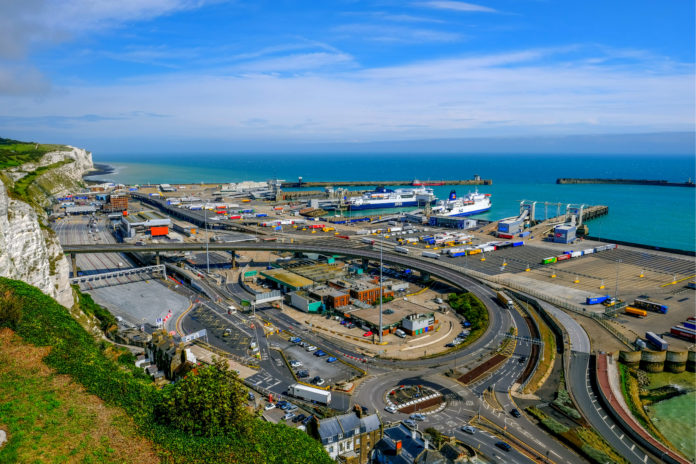Following on from the rising costs associated with the IMO 2020 sulphur freight forwarders and shippers are expecting non-tariff costs to raise prices for UK freight following the country’s exit from the EU.
Any tariffs applied to goods exported from the EU to the UK may be subject to tariffs following the conclusion of negotiations, which the UK Government says will be concluded this year. Similar tariffs may also be applied to EU imports as a result of these negotiations. However, the Freight Transport Association (FTA) says that non-tariff charges could be far higher as border checks and financial measures and other regulations are imposed after the UK leaves the union.
This a particular concern for shortsea load on load off container shipping as well as the ro-ro industry which contributes in excess of 2 million truckloads, including containers, per year through Dover alone.
In addition, some European shippers have told Container News that they are already advising customers, ahead of the 31 December 2020 departure date, that they will not transport UK boxes door-to-door anymore but will only carry the cargo as far as the UK port of entry. Customers will then need to negotiate getting the release of the cargo from the UK authorities themselves.
The FTA has already said that UK trucking services are 52,000 drivers short and they need to recruit more drivers. However, new immigration regulations that come into force if the UK leaves the EU without a free trade deal will mean that UK trucker licences will no longer be valid in Europe and there will be an earnings bar that prevents workers earning less than £33,000 from entering the country. It is a great concern for the FTA as this earnings limit precludes almost all of the logistics industry workers, including truck drivers.
In addition, Pauline Bastidon, the head of global and European policy at the FTA, commented that forwarders and shippers sending goods to the UK will need to alter the INCO terms of carriage as a consequence.
“Customs brokers and freight forwarders will need to take on the risk of delays at the borders [after the Brexit deadline] and they are not happy to do that,” Bastidon explained to Container News.
However, Bastidon also pointed out that there were examples where shipper and consignee have agreed to share the risk. Things could change as the negotiations progress this year, though any extension will need to be agreed by July this year if it is to be implemented by the end of the year. Failure to agree an extension to the transition period will result in a hard Brexit.
“If there is a fixed deadline, and we have now heard of the red lines from the UK Government over the weekend, but the question is not whether an agreement can be reached in the time remaining, but is there to be an agreement worth doing if there are tariffs,” argued Bastidon
Disquiet amongst UK shippers arose following the chancellor’s, Sajid Javed’s, comments to the Financial Times over the weekend where he told the paper that the UK will “not be a rule taker,” and that there will be divergence.
Tim Rycroft, chief operating officer of the Food and Drink Federation, told BBC Radio 4’s Today programme that it sounded like the “death knell” for frictionless trade with the EU.
Even so, Bastidon believes that the major hurdles for industry, particularly for perishable goods such as food and drink, will be non-tariff barriers to trade, including regulatory checks, customs regulations, labelling, sanitary and phytosanitary measures, financial measures and other considerations will raise costs and could have a greater impact than the tariffs themselves, according to the FTA’s Bastidon.
“Import and export procedures will cost £15 billion (US$19.5 billion) a year and companies will need to employ double teams for vet services and could see costs rise as any cargo or part cargo rejected for transportation will need to be transported back to the exporter further adding to the costs,” explained Bastidon.
She went on to point out that certain foods will need health certificates, which will require veterinary services for sanitary and phytosanitary goods, and the costs for this work will increase the overall cost of trade.
Nick Savvides







